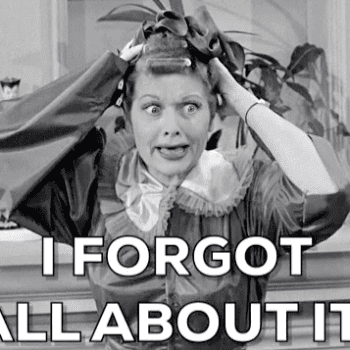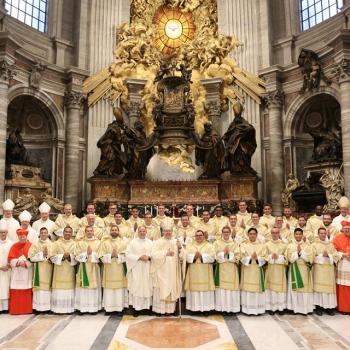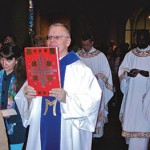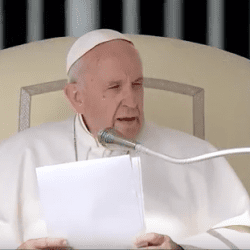The time has come to study and consider “seriously” the issue of the presence of women in the Church, pleaded Sunday evening Bishop Paul-André Durocher on the airwaves of Tout le monde en parle ( TLMEP ).
“If women were deacons, for example, [people assisting the leader of a local church], they would have the power to marry, to baptize. They would be part of the management teams. It’s a first step, I think, “he explained when called to react on the issue.
But among priests, the reality is more complicated, according to the Archbishop of Gatineau. “The problem here is that the pope said it could not change, that women could not be priests,” he added. The only way it could change is if there was a full council of all bishops on the issue, and that’s not for tomorrow. ”
Archbishop Durocher believes that we must “work now on what we are capable of doing”, especially in local churches, in order to make clerical institutions more egalitarian.
Well, that’s adorable — and, frankly, laughable.
I don’t know how they do things in Canada, so maybe it is different from how we do things in the U.S.
But as I’ve noted before: in a good many places around this country, deacons have nothing remotely resembling power. “Part of the management team”? Most deacons would tell you they are labor, not management. There are a lot of parishes where pastors don’t let deacons preach, baptize or witness marriages. (I can vouch for this: some of the people in the pews aren’t crazy about that, either. I had one bride who did not want me to do her wedding ceremony, after the original priest became unavailable, because she had to have a priest.)
There are dioceses where a significant number of priests do not even think deacons are “really ordained.” (Check out this story, for example, which suggests diaconal ordination is really only temporary and could expire.) There are pastors who refuse to promote the vocation — and, in fact, do everything to discourage it.
And, of course, there are bishops (and some younger priests) who have stated they feel the vocation is unnecessary and just another aggravation.
I still get incredulous looks when I tell the story I heard when I was in formation, of a monsignor who learned that a deacon would be assisting at his Mass and laughed. “A deacon?,” he said. “Hell, if I wanted a potted plant I would have called FTD.”
And then there was the time I attended the Vigil Mass for the funeral of a priest. I was the only deacon, amid about a dozen priests. I was vested and asked the MC if there was anything I could do, anything at all. “No, I don’t think so,” he said. “We don’t need a deacon for the Mass and we have enough priests for communion.”
So I sat in the pews.
So when I hear people exclaim that being a deacon brings with it some sort of power or influence or importance, I have to laugh. No. Not really.
One answers the call to the diaconate out of a love for the Lord and a desire to serve.
I’ve said this before and I’ll say it again: whatever one may think about the theology of women clergy, the lived reality of this vocation is something altogether different.
If the Church is serious about considering women deacons, I’d encourage all concerned to get male deacons right first.
And frankly, in that regard, we still have a long way to go.












